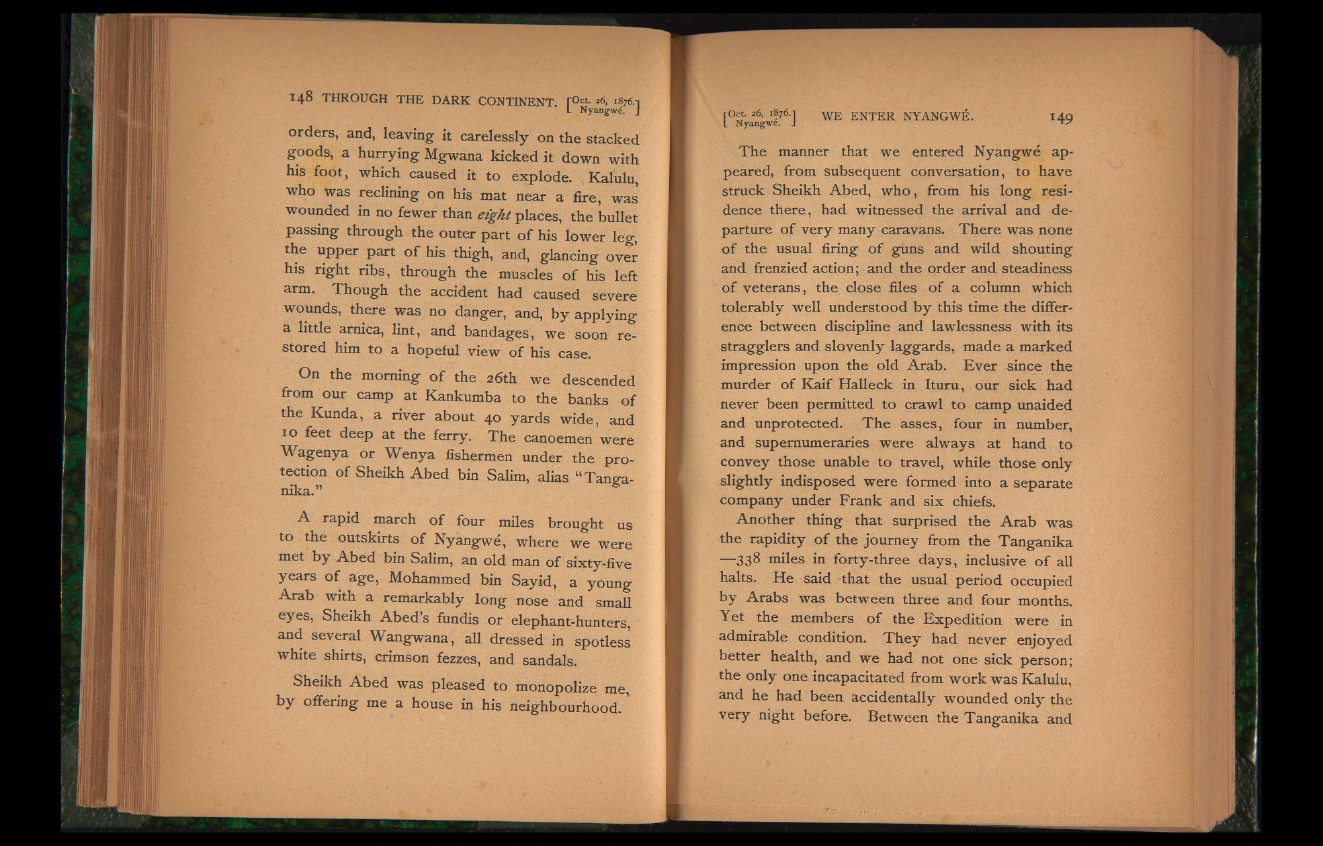
orders, and, leaving it carelessly on the stacked
goods, a hurrying Mgwana kicked it down with
his foot, which caused it to explode. Kalulu,
who was reclining on his mat near a fire, was
wounded in no fewer than eight places, the bullet
passing through the outer part of his lower leg,
the upper part of his thigh, and, glancing over
his right ribs, through the muscles of his left
arm. Though the accident had caused severe
wounds, there was no danger, and, by applying
a little arnica, lint, and bandages, we soon restored
him to a hopeful view of his case.
On the morning of the 26th we descended
from our camp at Kankumba to the banks of
the Kunda, a river about 40 yards wideb and
10 feet deep at the ferry. The canoemen were
Wagenya or Wenya fishermen under the protection
of Sheikh Abed bin Salim, alias “ Tansra-
nika.”
A rapid march of four miles brought us
to the outskirts of Nyangwe, where we were
met by Abed bin Salim, an old man of sixty-five
years of age, Mohammed bin Sayid, a young
Arab with a remarkably long nose and small
eyes, Sheikh Abed’s fundis or elephant-hunters,
and several Wangwana, all dressed in spotless
white shirts, crimson fezzes, and sandals.
Sheikh Abed was pleased to monopolize me,
by offering me a house in his neighbourhood.
The manner that we entered Nyangwe appeared,
from subsequent conversation, to have
struck Sheikh Abed, who, from his long residence
there, had witnessed the arrival and departure
of very many caravans. There was none
of the usual firing of guns and wild shouting
and frenzied action; and the order and steadiness
of veterans, the close files of a column which
tolerably well understood by this time the difference
between discipline and lawlessness with its
stragglers and slovenly laggards, made a marked
impression upon the old Arab. Ever since the
murder of Kaif Halleck in Ituru, our sick had
never been permitted to crawl to camp unaided
and unprotected. The asses, four in number,
and supernumeraries were always at hand to
convey those unable to travel, while those only
slightly indisposed were formed into a separate
company under Frank and six chiefs.
Another thing that surprised the Arab was
the rapidity of the journey from the Tanganika
— 338 miles in forty-three days, inclusive of all
halts. He said that the usual period occupied
by Arabs was between three and four months.
Yet the members of the Expedition were in
admirable condition. They had never enjoyed
better health, and we had not one sick person;
the only one incapacitated from work was Kalulu,
and he had been accidentally wounded only the
very night before. Between the Tanganika and